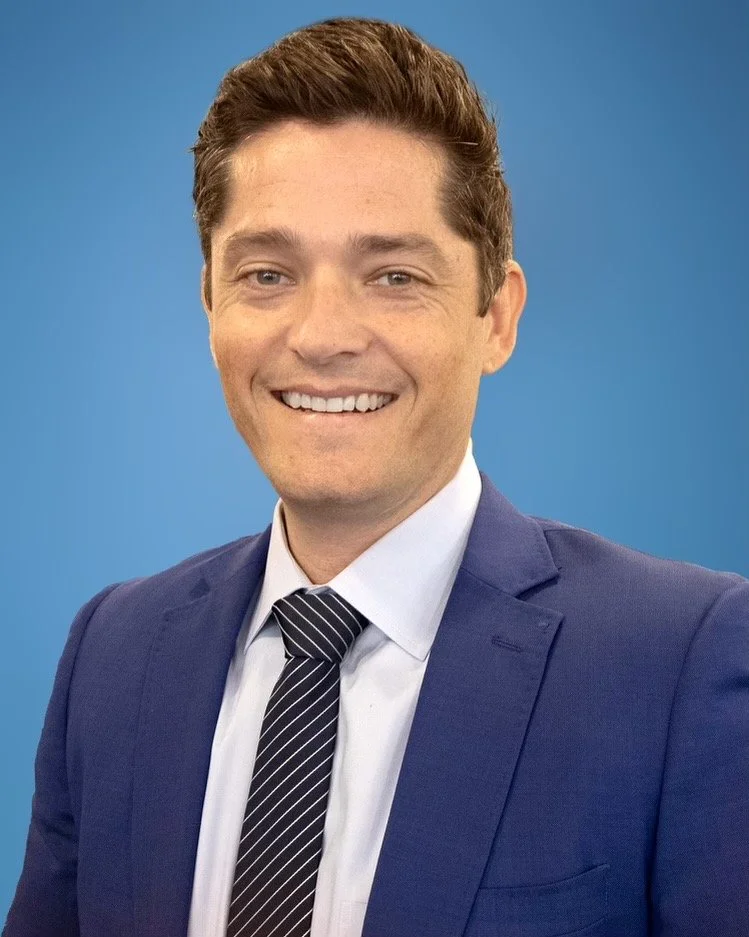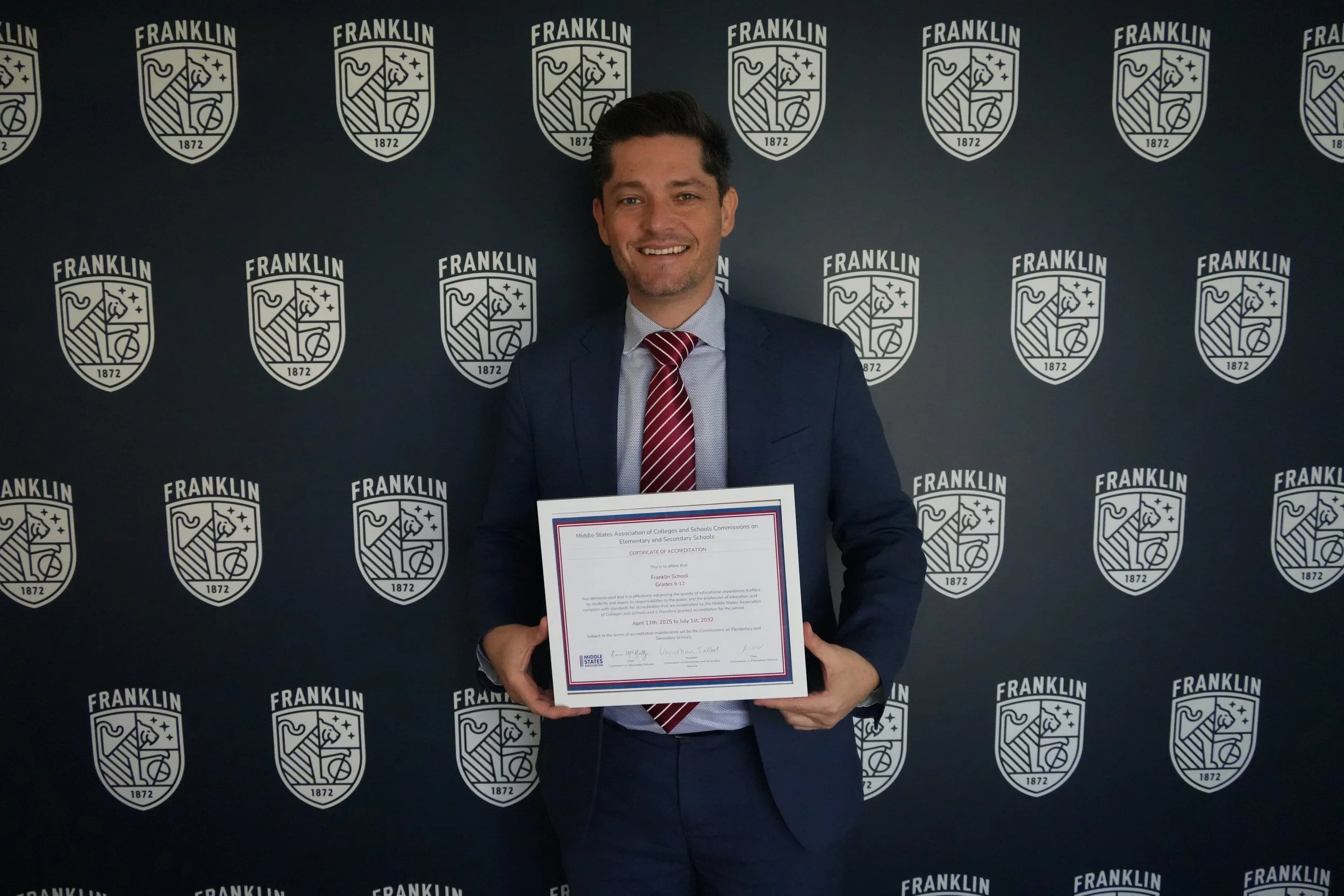Meet William Campbell
Founding Head of Franklin School
MSA: Tell us a little about yourself. How did you land in the world of education and what has your journey entailed?
William: I often say I didn’t “land” in education, I grew into it. What began as a passion for teaching and coaching evolved into a career dedicated to shaping whole institutions. Over the years, I’ve been privileged to lead in roles that span continents, sectors, and scales, each one sharpening my belief that education is both a deeply human endeavor and a complex, strategic enterprise.
My early years were spent in Australia, where I served as Dean of Faculty at the Australian College of Physical Education and an elected member of the NSW Council of Deans of Education, influencing policy and academic quality for universities across the state. In schools, I held leadership roles at Trinity Grammar School and later at Dwight School in New York City, where I served on the Senior Leadership Team and directed Science and Physical Education for the International Baccalaureate (IB) SEHS Diploma Programme and PYP and MYP programmes respectively. Each step taught me the importance of balancing academic rigor with operational excellence.
As Founding Head of Franklin School, part of the global network of Dwight Schools, I’ve been entrusted with building a school from the ground up, uniting governance, finance, enrollment, and compliance, while fostering a culture of innovation and care. Along the way, I’ve learned that leadership in education requires the vision of a CEO, the discipline of an operations executive, and the empathy of a teacher. It’s about inspiring people, building trust, and designing systems that endure. Today, whether serving on international councils, driving action research, or mentoring emerging leaders, my focus remains the same: ensuring that the best of education is transformational, scalable, and deeply human.
MSA: Thanks for sharing that with us. What motivates you to work in the field of education?
William: What motivates me most is the privilege and responsibility of shaping ecosystems where potential becomes reality. Education, at its core, is an act of service, and I believe the role of a Head of School is to create an environment where every student, teacher, and family experiences the very best of what education can offer, both now and in the future.
I see my work as equal parts steward and strategist. The steward preserves the traditions, values, and proven best practices that give a school its soul. The strategist anticipates what lies ahead, aligning pedagogy, technology, and skills development with the demands of an increasingly complex and unpredictable world. The intersection of deep human connection and disciplined operational leadership, is where innovation becomes not just possible, but sustainable and accessible.
At Franklin, this has meant designing first-of-its-kind opportunities that reimagine what school can be. We have embedded AI-driven learning analytics, become the North American flagship for the Fab Learning Academy, and developed groundbreaking programs like Creative Applications of AI, where students build custom chatbots, graphic novels, podcasts, and video games, while critically engaging with ethics and responsible use.
Additionally, Sparkz, our AI mentoring platform created with Animated Intelligences, a creative EdTech studio company, supports students in global hackathons, entrepreneurship courses, and pitch events, offering real-time, targeted feedback that deepens thinking and sharpens communication.
These innovations have resulted in Franklin’s recognition as “A Top 10 Most Innovative School in the World” by T4 Education. A recognition like this is proof that the work we do is important, but what really drives me day-to-day is knowing we are not simply preparing students for their next academic step, we are equipping them for lives of meaning, adaptability, and impact.
MSA: Describe a specific change project you have been a part of. What were the main obstacles? How did you overcome them?
William: Launching Franklin School in Jersey City was not simply a construction project, it was a full-scale educational venture into one of the most competitive school markets in the world. The vision was clear, to create a first-of-its-kind institution that would deliver an exceptional, globally connected education, at half the tuition cost of comparable Manhattan schools, while becoming a point of pride for Jersey City and its surrounding communities.
The challenges were formidable. We were entering a landscape dominated by century-old Manhattan independents and high performing public schools, with deep reputations and established alumni networks. As a founding head, we needed to secure accreditation, recruit world-class faculty, design a future-ready curriculum that merged IB and AP frameworks, and establish elite level governance, compliance, and operational systems, all from the ground up. At the same time, we had to build trust with local families who were accustomed to sending their children across the river for “top tier” private schooling.
Our strategy blended business discipline with community-centered vision. We implemented AI-driven systems to streamline operations and improve decision-making, enabling a leaner cost structure without compromising quality. We partnered with global innovators and worked with leaders and educators from Princeton, Yale, Columbia, and the University of Technology Sydney to develop and offer opportunities rarely seen in high schools. We created professional learning ecosystems that inspired our teachers to collaborate, lead, and create.
Building credibility required both visible results and authentic relationships. Within three years, we achieved full MSA accreditation with an outstanding report and posted student acceptances to excellent colleges such as the University of Virginia, Northeastern, and UC San Diego. We cultivated an environment where parents saw their children thriving academically, socially, and emotionally.
We have an incredible team at Franklin that has embraced the vision, demonstrated great resilience, and modeled a willingness to innovate with deep review and reflection. It’s a journey I’m incredibly proud to lead.
MSA: What does "learning in community" mean to you? How do you stay connected and in-the-know about all things education?
William: For me, “learning in community” is the art of balancing the global and the local, drawing on the insights of world-leading thinkers while staying deeply attuned to the hopes, concerns, and lived realities of the families we serve.
I have the privilege of sitting at tables where the future of education is being actively shaped, as a member of the International Heads Council for the global network of Dwight Schools, the HP Futures Report Council, and the World Schools Summit Leadership Council. These roles place me alongside global innovators, policymakers, and sector leaders, where we explore the role of AI in closing systemic gaps, the evolution of skills for the next generation, and the ethical frameworks that must guide rapid change. These conversations inform my vision for Franklin, ensuring our students and faculty benefit from world-class thinking long before it reaches the mainstream.
Yet the work of a Head of School is not done in conference rooms alone. Equally important is keeping an ear to the ground, listening to parents, students, and faculty in real time. This means engaging directly with families about what they need for their children now, not just in 10 years; walking the halls daily to understand the pulse of the school; and maintaining open channels of communication that build trust and clarity.
Learning in community is not just about shared knowledge, it’s about shared responsibility. It’s the constant weaving together of global best practice and local context, ensuring that every innovation is both aspirational and immediately relevant to the people it serves.
MSA: What is a critical topic / question in education that everyone will have to attend to in the future?
William: One of the most critical issues we face, and one that will demand our collective attention, is how we protect the integrity of childhood in a world that is accelerating at unprecedented speed.
Too often, young people are propelled into adolescence and adulthood long before their minds and hearts are ready. The constant, unfiltered stream of information, imagery, and opinion available to them today can shape neural pathways, values, and self-perception before they have developed the deep-thinking skills to discern what is appropriate, truthful, or healthy. This is not simply about shielding children from “bad” material, it’s about safeguarding the conditions in which curiosity, imagination, and moral reasoning can flourish naturally.
We must reclaim the idea that age-appropriate activities, skills development, and unhurried opportunities for play, exploration, and reflection are not luxuries, they are the bedrock of cognitive and emotional resilience.
The challenge is not whether we expose children to the realities of a fast, complex, and often troubling world (they will inevitably encounter them) but how we equip them to meet that world on their terms, in their time. That means designing educational experiences that build both the intellect and the character to navigate ambiguity; creating school cultures that value discernment as much as achievement; and partnering with families to ensure that the digital and physical environments children inhabit are intentional, nurturing, and safe.
MSA: Thank you for sharing your change story with us William!
Contact: wcampbell@franklinjc.org


